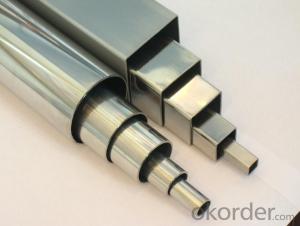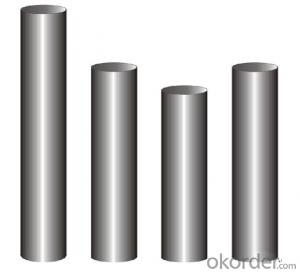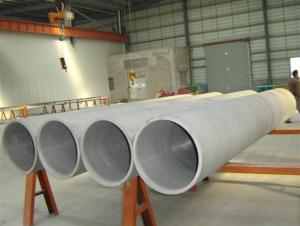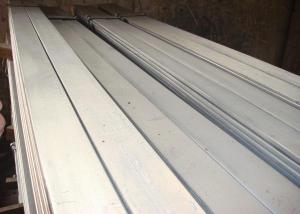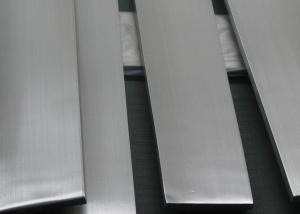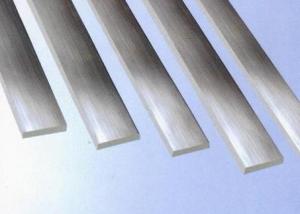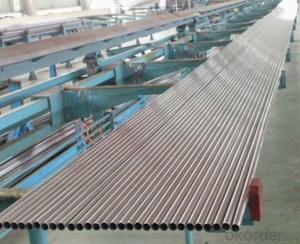Welded/seamless wall thickness 316 stainless steel pipe specs
- Loading Port:
- Shanghai
- Payment Terms:
- TT OR LC
- Min Order Qty:
- 4 m.t.
- Supply Capability:
- 5000 m.t./month
OKorder Service Pledge
OKorder Financial Service
You Might Also Like
Item specifice
Welded/seamless wall thickness
316 stainless steel pipe specs
Product Description
Product infomation
stainless steel pipe /tube | |
standard | ASTMA554,A249,A269and A270,A312 |
surface | 180G,320G,400G satin /hairline,400G,500G mirror finish |
material grade | 201,202,304,304l,316,316L,309s,310s,316ti,321,904L |
thickness | 0.5mm-50mm |
outer diameter | 10-600mm |
length | 5.8m,6m ,or as customer required |
application | decoration ,construction ,kitchen ,etc |
packaging | plastic wrapper and wooden packaging or as your requirement |
delivery time | 10days after received the deposit of T/T or L/C |
note | we can produce other standard as the customers'requirement |
Chemical composition
----316 stainless steel pipe specs
Stainless Steel pipe/tube grade | |||||||
Grade | Chemical composition | ||||||
C≤ | Si≤ | Mn≤ | P≤ | S≤ | Ni | Cr | |
201 | 0.15 | 1.00 | 5.5-7.5 | 0.5 | 0.03 | 3.50-5.50 | 16.00-18.00 |
202 | 0.15 | 1.00 | 7.5-10.0 | 0.5 | 0.03 | 4.00-6.00 | 17.00-19.00 |
304 | 0.08 | 1.00 | 2.00 | 0.045 | 0.03 | 8.00-11.00 | 18.00-20.00 |
304L | 0.03 | 1.00 | 2.00 | 0.045 | 0.03 | 8.00-12.00 | 18.00-20.00 |
309 | 0.2 | 1.00 | 2.00 | 0.04 | 0.03 | 12.00-15.00 | 22.00-24.00 |
309S | 0.08 | 1.00 | 2.00 | 0.045 | 0.03 | 12.00-15.00 | 22.00-24.00 |
310 | 0.25 | 1.50 | 2.00 | 0.04 | 0.03 | 19.00-22.00 | 24.00-26.00 |
310S | 0.08 | 1.00 | 2.00 | 0.045 | 0.03 | 19.00-22.00 | 24.00-26.00 |
316 | 0.08 | 1.00 | 2.00 | 0.045 | 0.03 | 10.00-14.00 | 16.00-18.00 |
316L | 0.03 | 1.00 | 2.00 | 0.045 | 0.03 | 10.00-14.00 | 16.00-18.00 |
316Ti | 0.08 | 1.00 | 2.00 | 0.045 | 0.03 | 10.00-14.00 | 16.00-18.00 |
2205 | 0.03 | 1.00 | 2.00 | 0.03 | 0.02 | 4.50-6.50 | 22.00-23.00 |
410 | 0.15 | 1.00 | 1.00 | 0.04 | 0.03 | 0.6 | 11.50-13.50 |
430 | 0.12 | 0.12 | 1.00 | 0.04 | 0.03 | 0.6 | 16.00-18.00 |
Products photos--316 stainless steel pipe specs
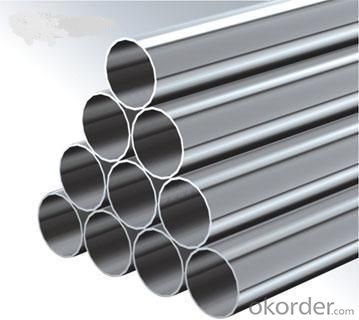
Welded stainless steel pipe/tube
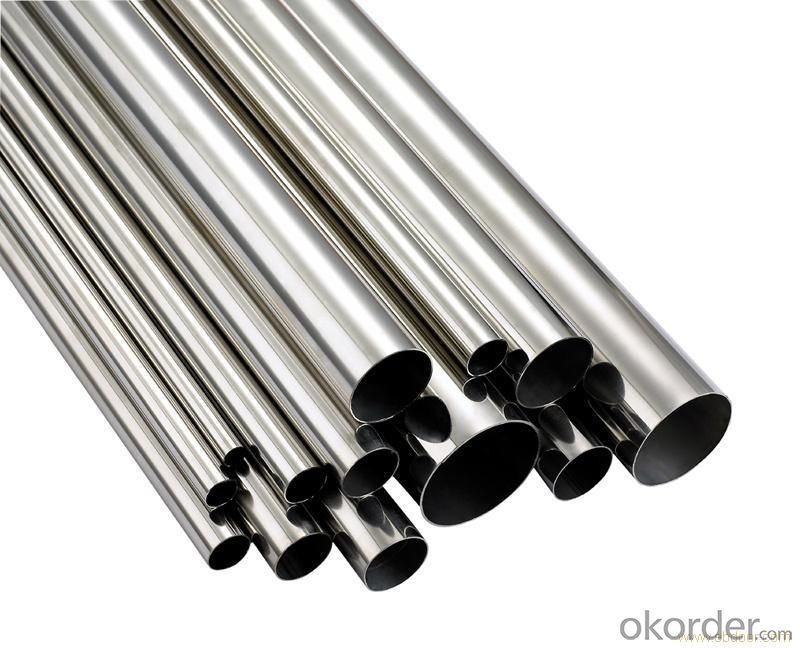
Seamless stainless steel pipe/tube
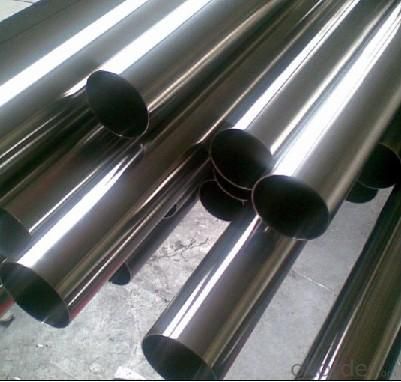
Packaging & Shipping
316 stainless steel pipe specs
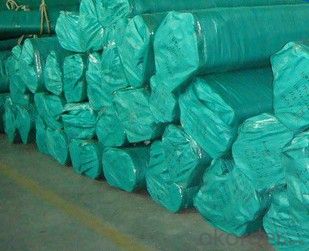
Application:
It is widely used in petroleum, electronics, chemical industry, medicine, textile, food, machinery, building, nuclear power, aerospace, military industry and other industries.
- Q:How are stainless steel pipes manufactured?
- Stainless steel pipes are typically manufactured through a two-step process. First, the raw material, stainless steel billets, are heated and pierced to form a hollow tube known as a shell. Then, the shell is further elongated and shaped into the desired pipe size using various methods such as hot extrusion, cold drawing, or welding. These processes ensure the high strength, corrosion resistance, and durability of stainless steel pipes.
- Q:Are stainless steel pipes resistant to chemical corrosion?
- Stainless steel pipes possess resistance against chemical corrosion. This attribute is a result of the abundant chromium content within stainless steel, which generates a safeguarding oxide layer on the pipe's surface. This layer acts as a barrier, effectively obstructing chemical substances from interacting with the steel beneath and inducing corrosion. Moreover, stainless steel pipes exhibit resistance against alternative corrosion types, including rusting, thereby establishing their widespread utilization across industrial, commercial, and residential sectors where exposure to chemical substances is anticipated.
- Q:What is the difference between 347 and 321 stainless steel pipes?
- The difference between 347 and 321 stainless steel pipes lies in their chemical composition and intended applications. 321 stainless steel contains titanium as a stabilizing element, which prevents the formation of chromium carbide during high-temperature service. This allows the steel to be used in environments where carbide precipitation may occur, such as in the presence of intergranular corrosion. 321 stainless steel pipes are commonly used in applications where high temperatures and corrosive environments are present, such as in the aerospace industry. On the other hand, 347 stainless steel contains columbium and tantalum as stabilizing elements. These elements also prevent the formation of chromium carbide, but they provide enhanced resistance to intergranular corrosion compared to 321 stainless steel. 347 stainless steel pipes are often used in applications where high temperatures and corrosive environments are a concern, such as in the oil and gas industry. In summary, the main difference between 347 and 321 stainless steel pipes is the addition of columbium and tantalum in 347 stainless steel, which provides better resistance to intergranular corrosion. This makes 347 stainless steel pipes more suitable for applications where corrosive environments and high temperatures are present.
- Q:Can stainless steel pipes be welded?
- Yes, stainless steel pipes can be welded.
- Q:How can stainless steel and copper pipe be welded?
- Used to burn the brass pipe welding copper tube of copper which is often used for the installation and maintenance of brass stainless steel is rarely used because there are few people who will burn
- Q:What is the composition of stainless steel pipes?
- Stainless steel pipes are primarily composed of iron with a minimum of 10.5% chromium content by mass. The addition of chromium creates a protective oxide layer on the surface, known as the passive layer, which helps prevent corrosion and provides stainless steel with its characteristic resistance to rust and staining. Additionally, stainless steel pipes may contain other elements such as nickel, molybdenum, and manganese, which enhance their mechanical properties and corrosion resistance. These alloying elements contribute to the overall strength, durability, and versatility of stainless steel pipes, making them suitable for various applications in industries such as construction, automotive, and manufacturing.
- Q:Are stainless steel pipes suitable for dairy applications?
- Yes, stainless steel pipes are highly suitable for dairy applications. They offer excellent corrosion resistance, hygiene, and durability properties required for the handling of dairy products. Additionally, stainless steel pipes can be easily cleaned and maintained, ensuring the highest standards of food safety and quality in dairy processing.
- Q:Can stainless steel pipes be used for irrigation sprinkler systems?
- Yes, stainless steel pipes can be used for irrigation sprinkler systems. Stainless steel pipes are known for their durability, strength, and resistance to corrosion, making them an excellent choice for irrigation systems. They can withstand high water pressure and are less likely to rust or deteriorate over time compared to other materials like PVC or galvanized steel. Additionally, stainless steel pipes are hygienic and do not contaminate the water supply, making them a safe option for irrigation systems. However, it is important to consider factors such as cost and compatibility with existing infrastructure before deciding to use stainless steel pipes for irrigation sprinkler systems.
- Q:Can stainless steel pipes be used for wastewater pumping stations?
- Indeed, stainless steel pipes are suitable for use in wastewater pumping stations. Renowned for their durability, resistance to corrosion, and lengthy lifespan, stainless steel pipes prove to be an exceptional selection for wastewater applications. Given that wastewater pumping stations frequently handle corrosive and abrasive fluids, stainless steel pipes possess the ability to endure these harsh circumstances without deteriorating or causing contamination. Furthermore, stainless steel pipes are effortlessly cleaned and maintained, a critical feature for wastewater systems. In summary, stainless steel pipes represent a dependable and fitting choice for wastewater pumping stations.
- Q:Can stainless steel pipes be used for irrigation well systems?
- Yes, stainless steel pipes can be used for irrigation well systems. Stainless steel is highly resistant to corrosion and can withstand various environmental conditions, making it a suitable choice for irrigation applications. Additionally, stainless steel pipes offer long-term durability and maintain the quality of water being transported, ensuring efficient irrigation system performance.
1. Manufacturer Overview |
|
|---|---|
| Location | |
| Year Established | |
| Annual Output Value | |
| Main Markets | |
| Company Certifications | |
2. Manufacturer Certificates |
|
|---|---|
| a) Certification Name | |
| Range | |
| Reference | |
| Validity Period | |
3. Manufacturer Capability |
|
|---|---|
| a)Trade Capacity | |
| Nearest Port | |
| Export Percentage | |
| No.of Employees in Trade Department | |
| Language Spoken: | |
| b)Factory Information | |
| Factory Size: | |
| No. of Production Lines | |
| Contract Manufacturing | |
| Product Price Range | |
Send your message to us
Welded/seamless wall thickness 316 stainless steel pipe specs
- Loading Port:
- Shanghai
- Payment Terms:
- TT OR LC
- Min Order Qty:
- 4 m.t.
- Supply Capability:
- 5000 m.t./month
OKorder Service Pledge
OKorder Financial Service
Similar products
New products
Hot products
Hot Searches
Related keywords
